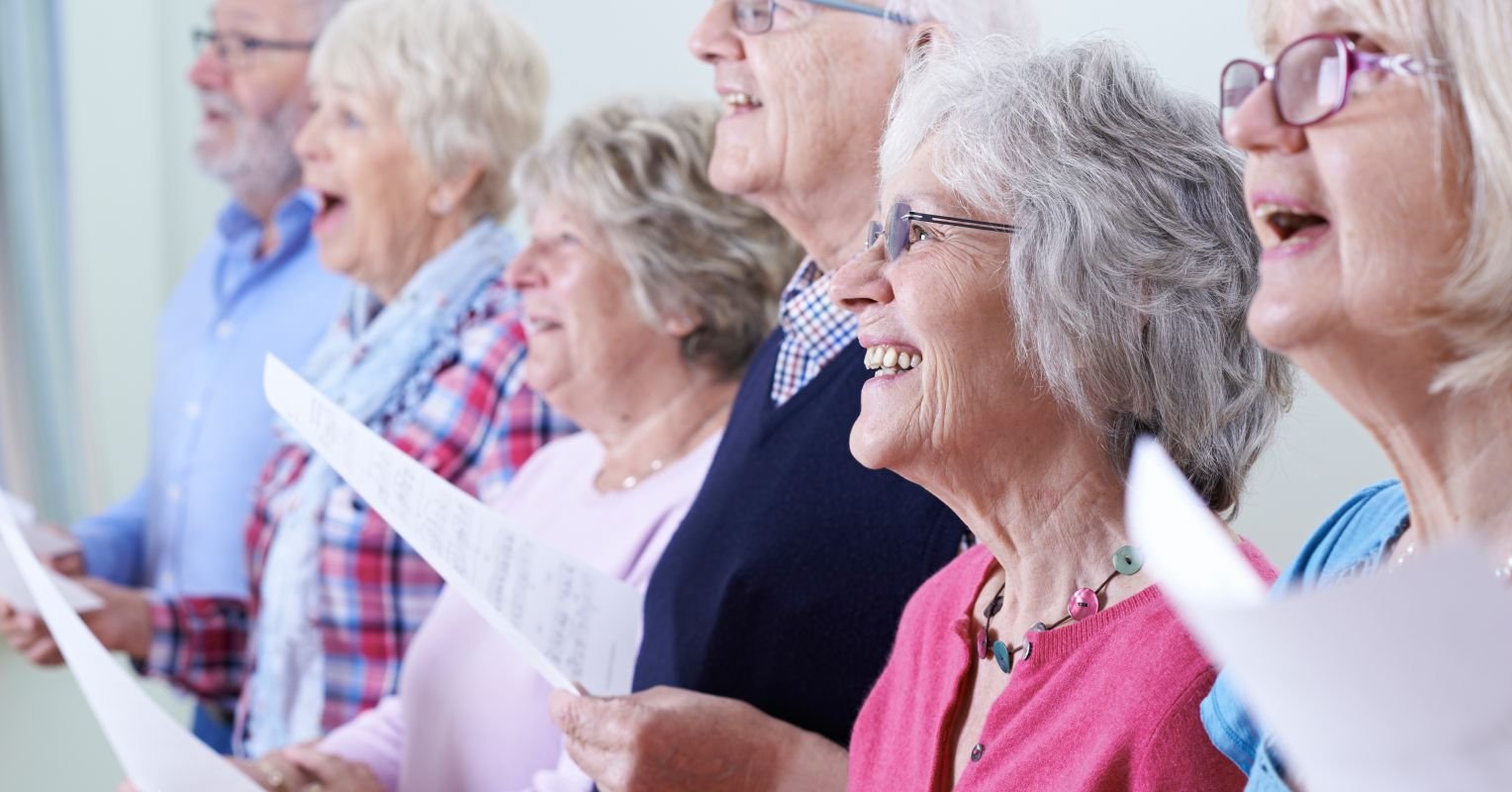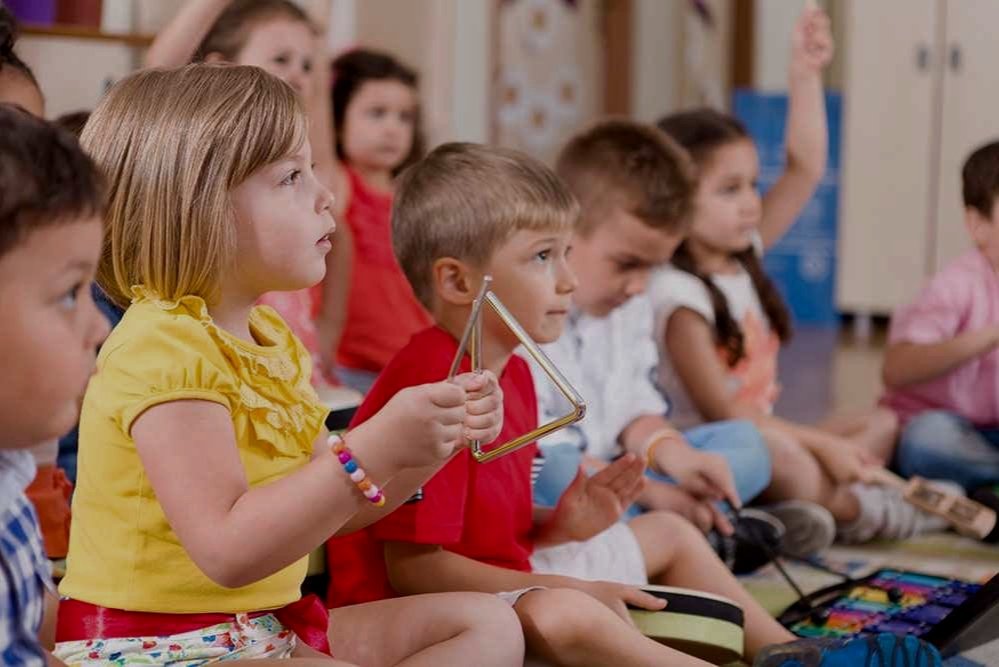
Everyone should experience the benefits of music.
Schedule A Session
The growing field of research in music and wellbeing demonstrates that all domains and phases of human life can benefit from participating in music.
I see music as a resource to help people flourish. To that end, I love making music with the following groups.
Seniors
Making music together can increase social bonding, lessen loneliness, and lighten anxiety. Singing together can strengthen memory and cognitive function and improve the quality of life of its participants.
Children
Music participation can help children develop social skills, contribute to reading readiness, provide auditory nutrients for the developing brain, and increase attention to auditory patterns. Besides that, it’s just a lot of fun!
Newcomers
Singing together can foster a sense of belonging and identity while simultaneously assisting to increase fluency of language. Music shares many aspects of spoken language and can enrich language learning. The emotion in music reminds us of what we share as humans from diverse backgrounds.
Discover the benefits of music
Research is increasing to demonstrate what humans have innately known and practiced for millennia: that music contributes to human wellbeing. Music is hard-wired into us as humans and touches all of our domains: psychological, physical, social, spiritual, and environmental. Because of its multidimensionality, it can be an ideal contributor to the experience of wholeness across our domains.
Research suggests that participating in music can contribute to:
decreased anxiety and depression
improved memory and cognitive function
social enhancements of a sense of belonging, identity, and community
About Me:
My name is Andrea Johnson and I’m a community musician and music educator in the Saskatoon area bringing singing-based participatory music sessions to English-language learners, people in assisted living and long term care facilities, daycares, preschools, and camps.
I believe that people of all ages can and should experience the benefits of music. In my work through community music education, I love seeing how music can bring us together, integrate the self, and contribute to human wellbeing.
Training: B.Mus (University of Saskatchewan); 120-hour Advanced TESOL Certificate (Coventry House International); Certificate in Music and Wellbeing (University of Saskatchewan)

Book a session today.
References and Resources:
Batt-Rawden, K., & Andersen, S. (2020). ‘Singing has empowered, enchanted and enthralled me’ - choirs for wellbeing? Health Promotion International, 35(1), 140–150. https://doi.org/10.1093/heapro/day122
Beynon, C., & Lang J. (2020). Singing My Way Back to You: Mapping the Learning Process of Persons with Dementia through Singing in an Intergenerational Choir. Heydon, Fancourt, and Cohen (Eds). The Routledge Companion to Interdisciplinary Studies in Singing Volume III: Wellbeing. New York: Routledge.
Clift, S., & Morrison, I. (2010). Group singing fosters mental health and wellbeing: Findings from the east Kent "Singing for Health" network project. Mental Health and Social Inclusion, 15(2), 88-97. doi: https://doi.org/10.1108/20428301111140930
Collins, A. (2020). The Music Advantage: How learning music helps your child’s brain and wellbeing. Allen and Unwin. Crows Nest, NSW, Australia.
Daykin, N., Mansfield, L., Meads, C., Julier, G., Tomlinson, A., Payne, A., Duffy, L., Lane, J., D’Innocenzo, G., Burnett, A., Kay, T., Dolan, P., Testoni, S., & Victor, C. (2018). What works for wellbeing? A systematic review of wellbeing outcomes for music and singing in adults. Perspectives in Public Health. Sage Publications. DOI: 10.1177/1757913917740391
Dingle, G., Sharman, L., Bauer, Z., Beckman, E., Broughton, M., Bunzli, E., Davidson, R., Draper, G., Fairley, S., Farrell, C., Flynn, L.M., Gomersall, S., Hong, M., Larwood, J., Lee, C., Lee, J., Nitschinsk, L., Peluso, N., Reedman, S. Vidas, D., Walter, Z., & Wright, O. (2021). How Do Music Activities Affect Health and Well-Being? A scoping Review of Studies Examining Psychosocial Mechanisms. Frontiers in Psychology. Vol 12.doi: 10.3389/fpsyg.2021.713818
Ferreri, L., Moussard, A., Bigand, E., & Tillman, B. (2019). Music and the Aging Brain. In Michael H. Thaut & Donald A. Hodges (eds) The Oxford Handbook of Music and the Brain.
Israel, H. (2013.) Language Learning Enhanced by Music and Song. Literacy Information and Computer Education Journal, 2:1.
Lenette, C., Weston, D., Wise, P., Sunderland, N., Bristed, H. (2016). Where words fail, music speaks: the impact of participatory music on the mental health and wellbeing of asylum seekers. Arts and Health: an International Journal for Research, Policy, and Practice. 8:2, 125-139.
Levitin, D. (2008). The World in Six Songs: How the Musical Brain Created Human Nature. Penguin Group Canada: Toronto ON.
Levitin, D. (2006). This Is Your Brain on Music: The Science of Human Obsession. Penguin Group: New York, NY. USA
Livesey, L., Morrison, I., Clift, S., & Camic, P. (2012). Benefits of choral singing for social and mental wellbeing: Qualitative findings from a cross-national survey of choir members. Journal of Public Mental Health, 11(1), 10-26. doi:https://doi.org/10.1108/17465721211207275
Osman, S., Tischler, V., & Schneider, J. (2016). ‘Singing for the Brain’: a qualitative study exploring the health and well-being benefits of singing for people with dementia and their caregivers. Dementia. 15:6, pp. 1326-1339. DOI: 10.1177/1471301214556291
Overy, K., & Molnar-Szakacs, I. (2009). Being Together in Time: Musical Experience and the Mirror Neuron System. Music Perception, 26(5), 489–504. https://doi.org/10.1525/mp.2009.26.5.489
Rebecchini, L. (2021). Music, mental health, and immunity. Brain, Behavior, & Immunity - Health, Volume 18, Article 100374.
Tamburri, N., Trites, M., Sheets, D., Smith, A., MacDonald, S. (2019). The Promise of Intergenerational Choir for Improving Psychosocial and Cognitive Health for Those with Dementia: The Voices in Motion Project. The Arbutus Review. 10:1. pp. 66-82. doi.org/10.18357/tar101201918962



